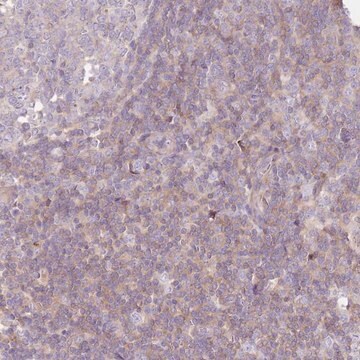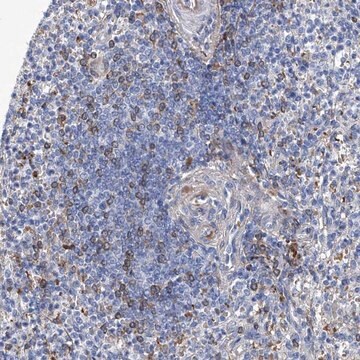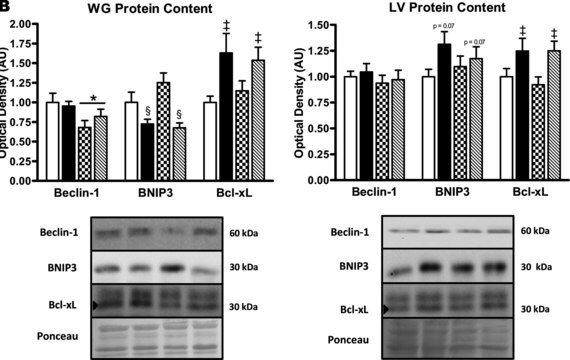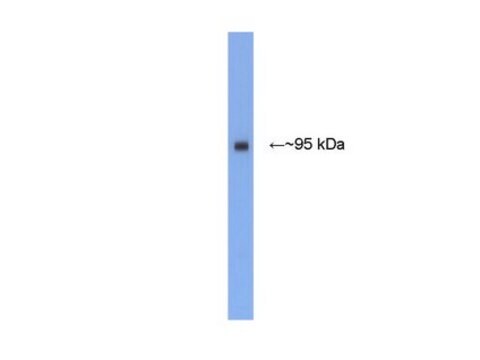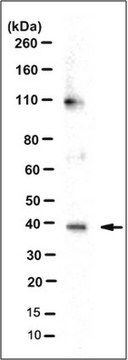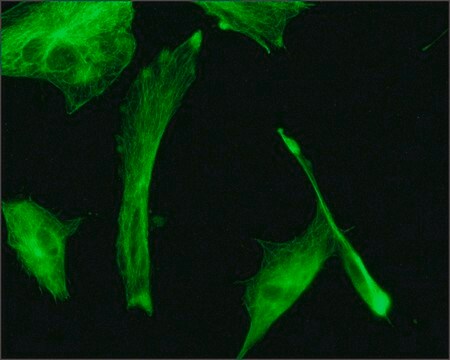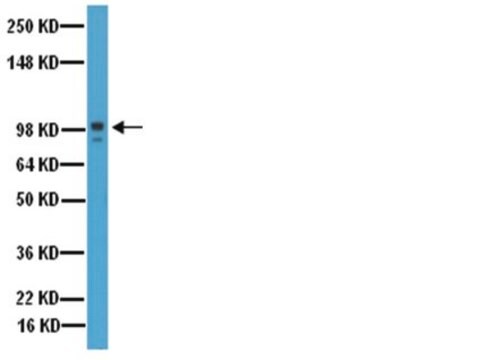ABF118
Anti-FPR2 Antibody
from rabbit, purified by affinity chromatography
Synonim(y):
N-formyl peptide receptor 2, FMLP-related receptor I, FMLP-R-I, Formyl peptide receptor-like 1, HM63, Lipoxin A4 receptor, LXA4 receptor, RFP, FPR2
About This Item
Polecane produkty
pochodzenie biologiczne
rabbit
Poziom jakości
forma przeciwciała
affinity isolated antibody
rodzaj przeciwciała
primary antibodies
klon
polyclonal
oczyszczone przez
affinity chromatography
reaktywność gatunkowa
human
metody
flow cytometry: suitable
western blot: suitable
numer dostępu NCBI
numer dostępu UniProt
Warunki transportu
wet ice
docelowa modyfikacja potranslacyjna
unmodified
informacje o genach
human ... FPR2(2358)
Powiązane kategorie
Opis ogólny
Immunogen
Zastosowanie
Inflammation & Immunology
Jakość
Western Blotting Analysis: 1 µg/mL of this antibody detected FPR2 in 10 µg of HL-60 cell lysate.
Opis wartości docelowych
Postać fizyczna
Przechowywanie i stabilność
Inne uwagi
Oświadczenie o zrzeczeniu się odpowiedzialności
Nie możesz znaleźć właściwego produktu?
Wypróbuj nasz Narzędzie selektora produktów.
Kod klasy składowania
12 - Non Combustible Liquids
Klasa zagrożenia wodnego (WGK)
WGK 1
Temperatura zapłonu (°F)
Not applicable
Temperatura zapłonu (°C)
Not applicable
Certyfikaty analizy (CoA)
Poszukaj Certyfikaty analizy (CoA), wpisując numer partii/serii produktów. Numery serii i partii można znaleźć na etykiecie produktu po słowach „seria” lub „partia”.
Masz już ten produkt?
Dokumenty związane z niedawno zakupionymi produktami zostały zamieszczone w Bibliotece dokumentów.
Nasz zespół naukowców ma doświadczenie we wszystkich obszarach badań, w tym w naukach przyrodniczych, materiałoznawstwie, syntezie chemicznej, chromatografii, analityce i wielu innych dziedzinach.
Skontaktuj się z zespołem ds. pomocy technicznej